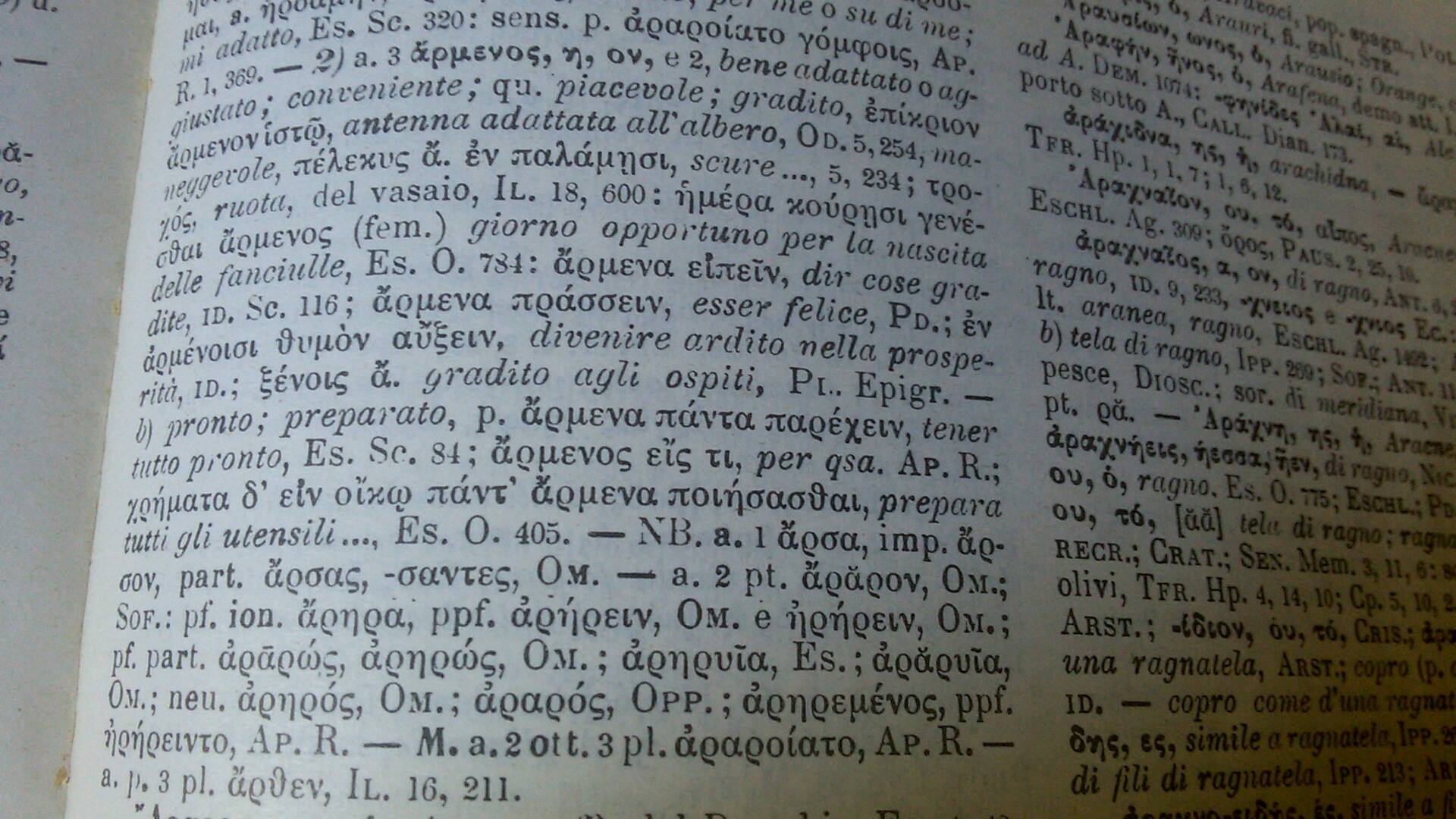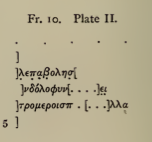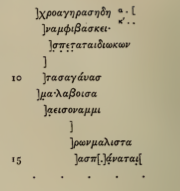Edmonds' edition of Sappho has great eagerness to fill gaps in papyrus texts. One example of this is fragment 12 (in Edmonds' numbering), which in Edmonds reads:
[Αἰ δέ μοι γάλακτο]ς ἐπ̣ά̣β̣ολ’ ἦσ̣[κε
τωὔθατ’ ἢ παίδω]ν δόλοφυν [ποήσ]ε̣ι̣
[ἀρμένα, τότ’ οὐ] τρομέροις πρ[ὸς ἄ]λλα
[λέκτρα κε πόσσι 4
ἠρχόμαν· νῦν δὲ] χρόα γῆρας ἤδη
[μυρίαν ἄμμον ῤύτι]ν ἀμφιβάσκει,
[κωὐ πρὸς ἄμμ’ Ἔρο]ς̣ π̣έ̣τ̣αται διώκων
[ἀλγεσίδωρος.
Here is my horrible super-literal English translation:
If to me the paps existed having obtained milk, and the ἀρμένα made a δολόφυν of babies, then with not trembling feet I would go to new beds; but now old age already goes around our skin with thousands of wrinkles, and love no longer flies in our pursuit, the pain-giver.
Here is Edmonds' translation:
If my paps could still give suck and my womb were able to bear clnkh-en, then would I come to another marriage-bed with unfaltering feet ; but nay, age now raaketh a thousand wrinkles to go upon my flesh, and Love is in no haste to fly to me with his gift of pain.
Now this question is about the words I left untranslated: what are they? δόλοφυς and δόλοφυν are nowhere to be found in my references, so I thought maybe it was a dialect alteration like κίνδυν for κίνδυνος, which others have reported in Sappho, but δολοφυνος and δολοφυνον both yield the same result as δολόφυν. As for ἀρμένα, all I find is ἄρμενα, which doesn't fit the meter because a long final vowel is required. Thinking again, the κίνδυν case is reported with -n nominative and -na accusative, which would make δολόφυν a nominative and probably the womb, and ἀρμένα maybe aeolic for ἀρμένη, "if provided [with what though?]". SO the translation would read "[…] and my δολόφυν (womb?), if provided [with what?], made …" oh wait, that genitive wouldn't fit then.
So how does this sentence work? What are those two words? Is my second guess right? And if so, what is that genitive doing there? Wouldn't an accusative (direct object), παῖδας, be better in there then?
Edit
I just reread my own poetic Italian translation of this, and it suggests armena might mean "suitable". perseus doesn't quite confirm this, but this hypothesis brings me to believe poēsei is not a verb, but the dative of the verbal nuon poēsis, and the translation needs to be rewritten as:
If to me the paps existed having obtained milk, and the δολόφυν were suitable for the making of babies, then with not trembling feet I would go to new beds; but now old age already goes around our skin with thousands of wrinkles, and love no longer flies in our pursuit, the pain-giver.
This leaves the hypothesis on armena to be checked, and the origins and meaning of dolophyn to be cleared.





